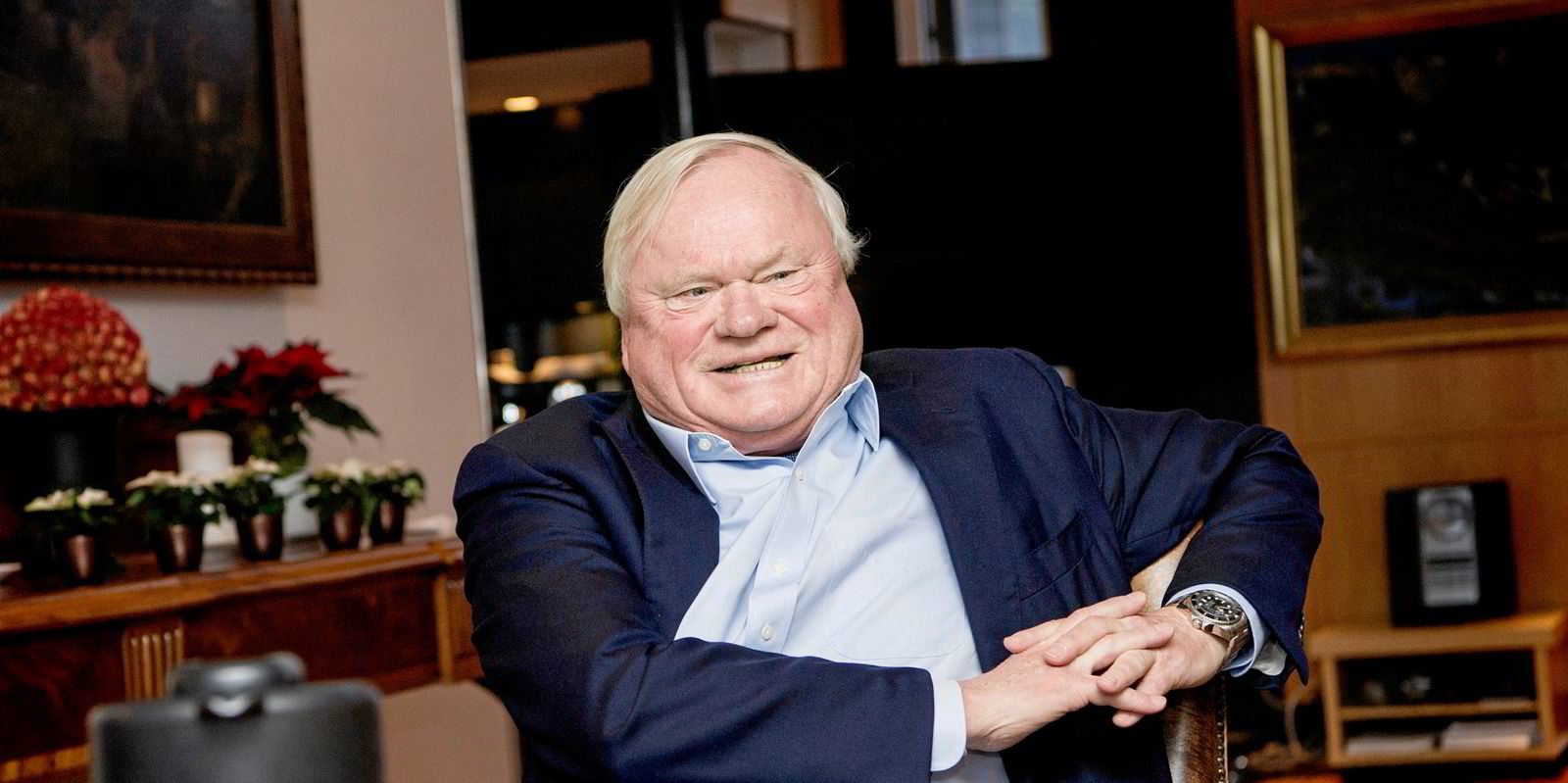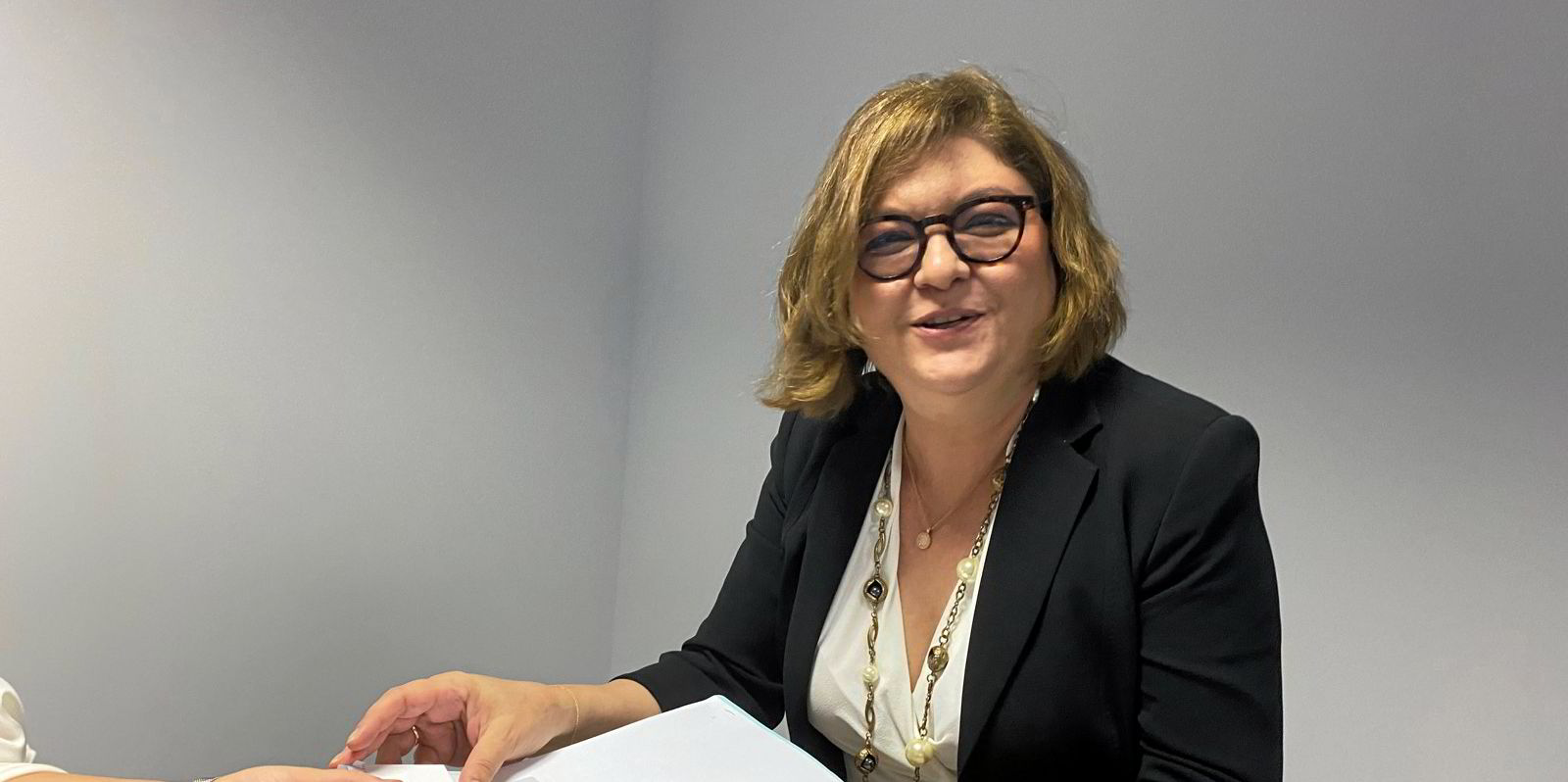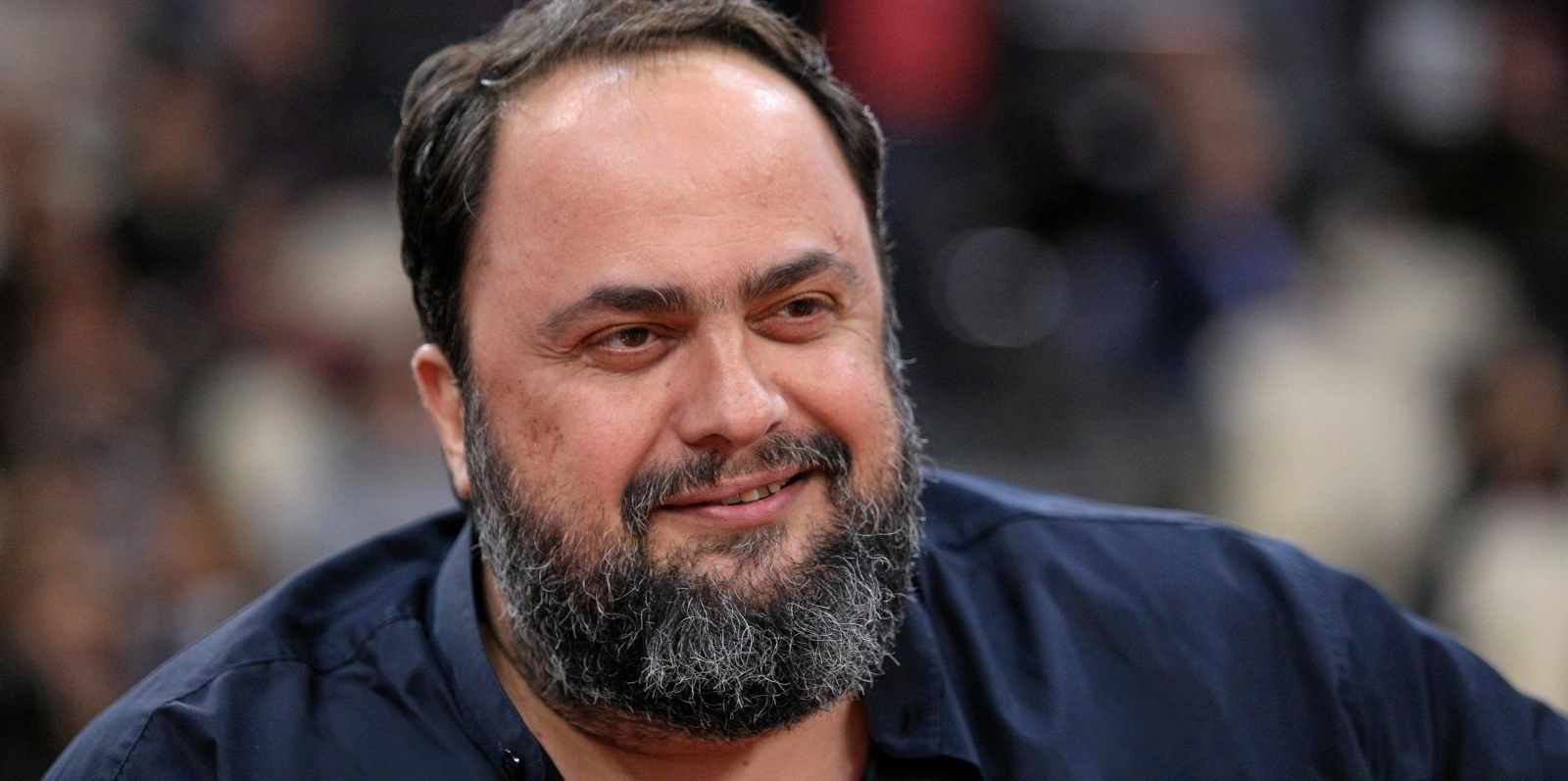A big-ticket deal to buy the crown jewels in Sovcomflot (SCF Group)’s tanker fleet fitted into his wider expansion into LNG-related assets, Greek owner Evangelos Marinakis said.
“For us, it’s very important to go for new vessels that can face the new regulations in the near future — we’re committed to this,” the principal of rapidly expanding Capital Maritime & Trading told a high-level panel at the TradeWinds Shipowners Forum on Tuesday.
Click here to follow all TradeWinds’ coverage of Posidonia in our live centre.
Believed by several observers to be the pride of the Sovcomflot fleet, the quartet of LNG dual-fuelled aframax tankers has already joined Capital’s private fleet.
The ice-class 1A aframax vessels were the first LNG-fuelled aframaxes when Sovcomflot ordered them in 2017 at a price of around $60m each.
Marinakis bought them last month at an undisclosed price from a group of banks selling off around 14 vessels formerly controlled by the Russian shipowner.
The most important issue to note about the acquisition, Marinakis said, is that it marked the continuation of investment in the LNG space and alternative fuels.
“We feel that LNG will be the fuel that will be consumed as the more friendly to the environment for the next 10, 15 years.”
Marinakis has entered the LNG carrier market in a big way in recent years. Founded in 2019, his Capital Gas outfit ordered a dozen such ships, scheduled for delivery between 2020 and 2024.
Marinakis said he has made further acquisitions since the Sovcomflot deal, without offering further details.
Such buys are made possible by his group’s liquidity. “What is important in our business is to have a very strong balance sheet so you can afford to make acquisitions when you feel it’s the right time,” he said.
Value creators
Marinakis also welcomed acquisitions on a corporate level, in view of the wider need to consolidate the tanker market.
In the ongoing merger battle around Euronav and Frontline, Marinakis squarely put himself in favour of John Fredriksen, who has pushed for a merger to build on the two firms’ existing strengths, rather than the opposing idea to pursue a more radical play on hydrogen.

“I think it’s important to follow guys that know and have a track record of creating value. I think John has a track record and I do support him,” Marinakis said.
“We need to consolidate and we need to create value for our shareholders. It’s as simple as that.”
Speaking at the TradeWinds forum, Marinakis also provided more texture to his position on Russian sanctions.
In statements made at a Capital Link forum on Monday, Marinakis was one of two owners to criticise sanctions, saying they end up hurting European consumers more than they hurt Russia.
Partly in response to Marinakis’ comments, EU commissioner Aldina Valean dismissed the criticism, saying they do inflict real harm on Russia.
Revisiting the matter on Tuesday, Marinakis clarified that he was in favour of reducing Europe’s dependence on Russian natural gas and oil and that this should even have happened sooner, even though it cannot happen overnight.

However, he insisted on criticizing the back-and-forth statements and announcements by the European Union on sanctions, which he said created “grey areas” and uncertainties in the market.
Given that any move away from Russian oil can be only gradual, Marinakis also said there was little sense in immediate self-sanctioning.
“Of course, it’s very nice to have an announcement today and say, our fleet will not carry Russian oil… maybe it [can be] a promotion or for the publicity of our companies — but I think this is bulls**t, as simple as that.”
Writing history
Marinakis’ big plans also extend to Nottingham Forest, the historic English football club he owns and which he steered back to the Premier League this year after more than two decades.
“The amazing thing is that the last time they were in the Premier League it was 23 years ago when my son [Miltiades] was born. And it was my son who went there a year ago and helped do the turnaround,” he mused.
Marinakis said he was prepared to deal with tough competition in the Premier League. “We’re used to dealing with hard matters in our business career and in our daily life and we think at the end of the day… to be competitive”.
“We have to spend and invest more of course,” he said.



